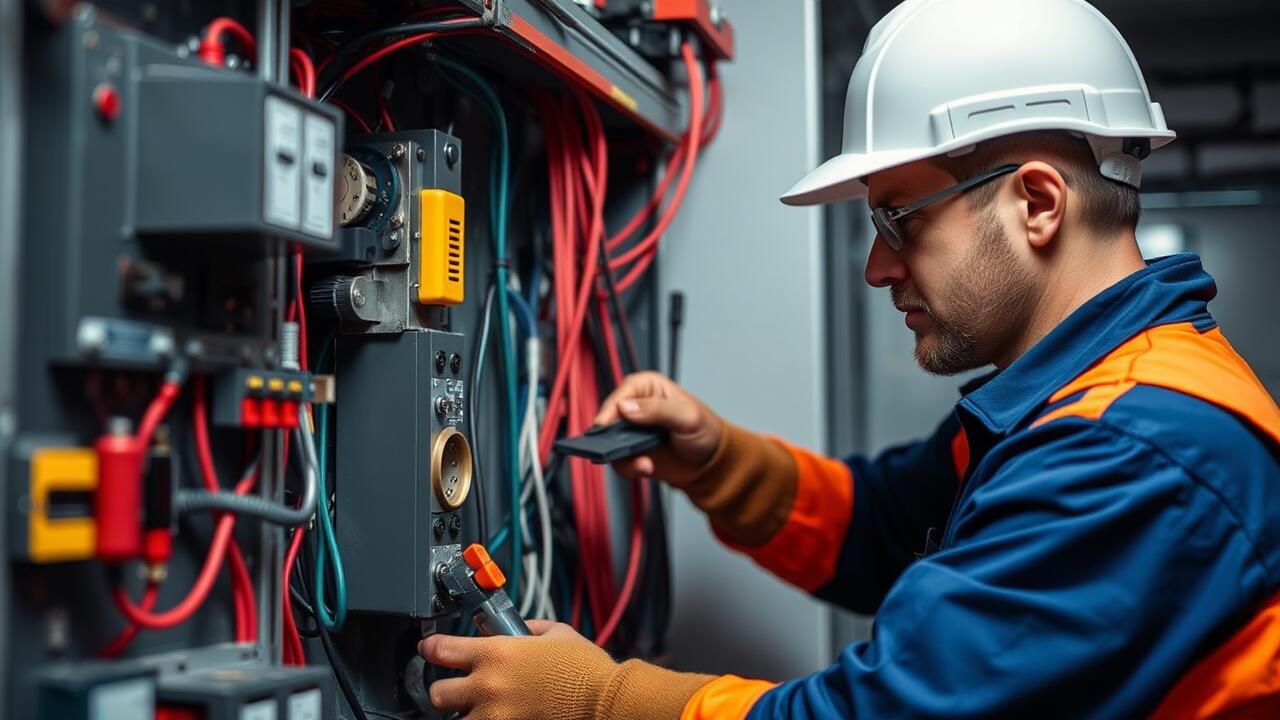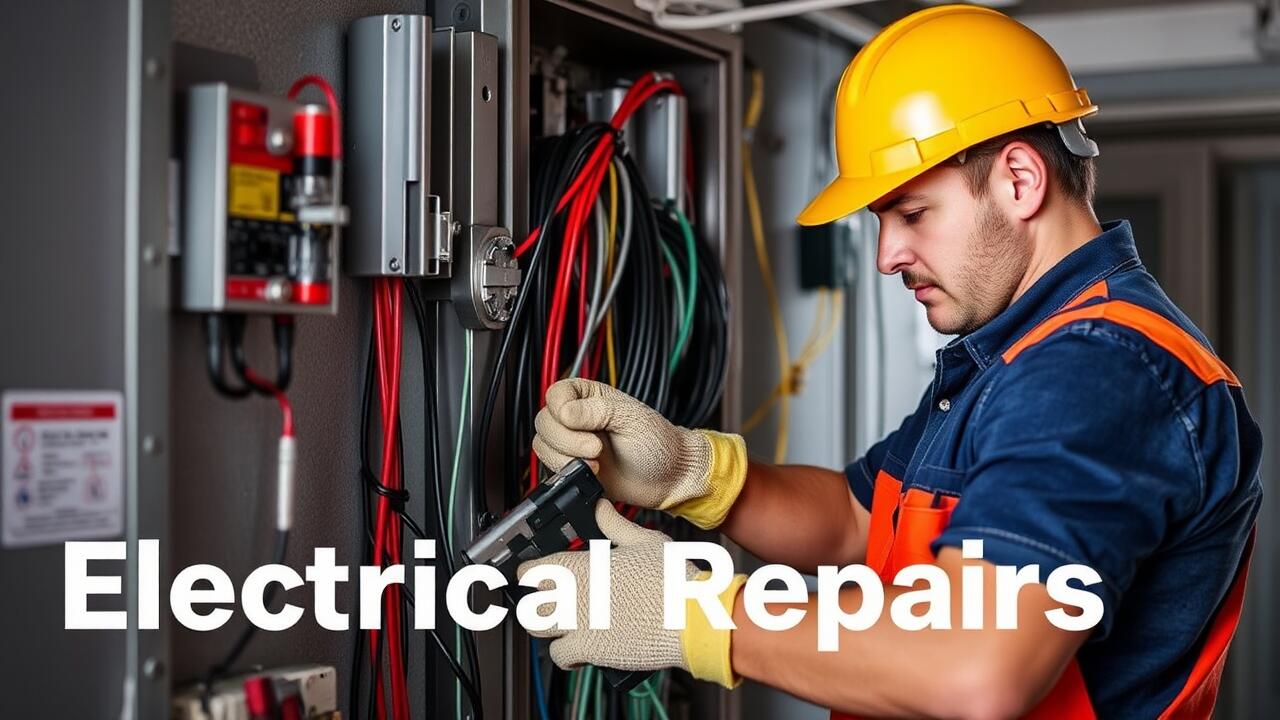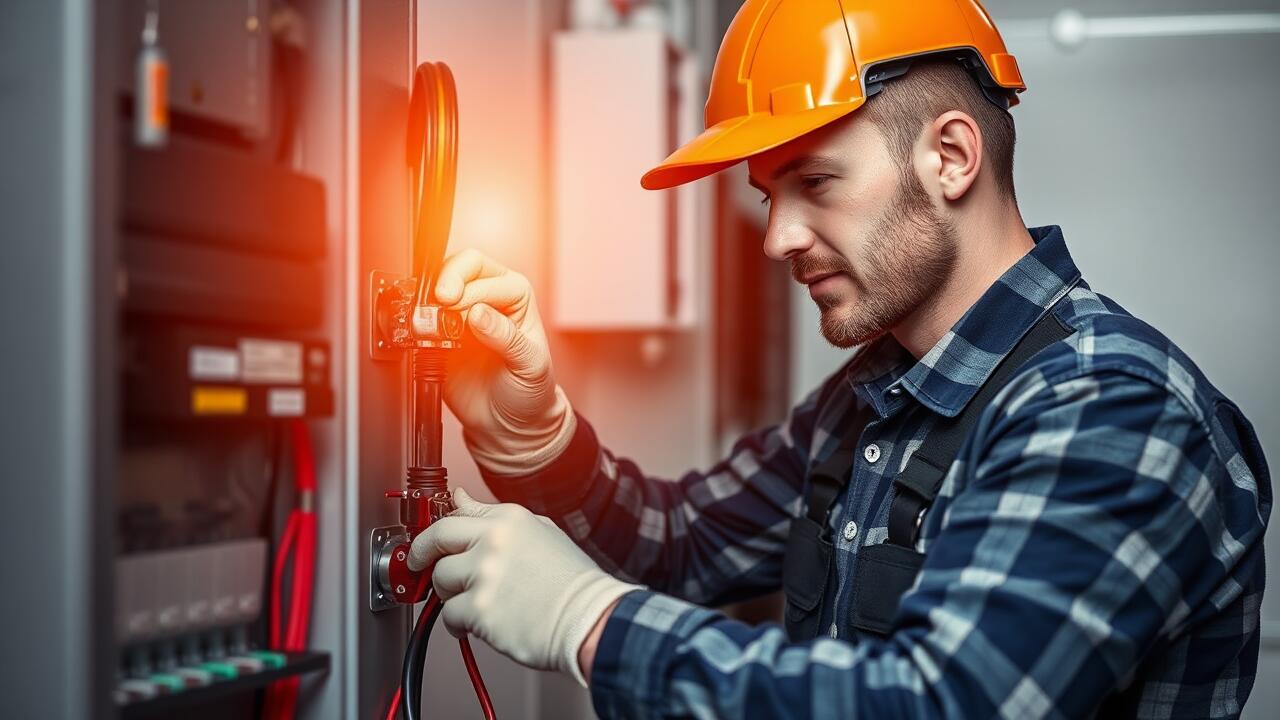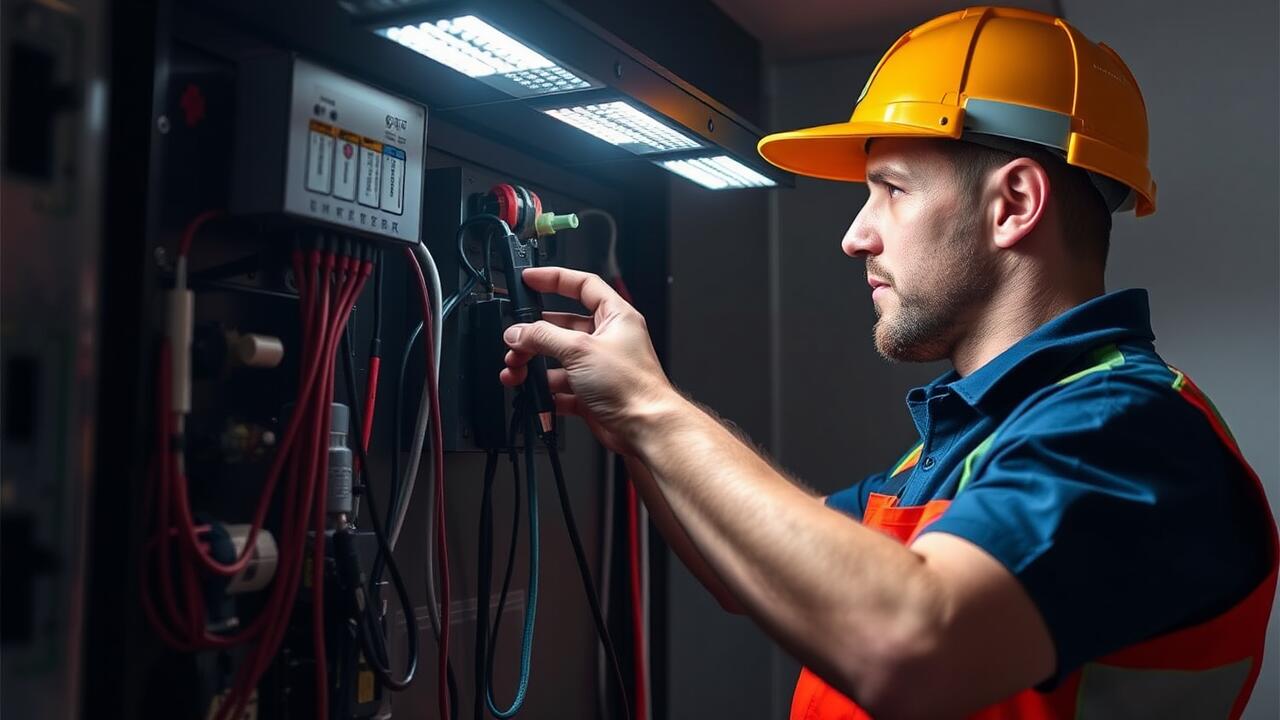
The Impact of Moisture on Electrical Systems
Moisture can significantly affect the integrity of electrical systems within homes. Water intrusion often leads to corrosion and short circuits, which pose serious risks to both safety and functionality. Homeowners in areas prone to high humidity should be especially vigilant about maintaining their electrical systems. The interaction of water with electrical components creates an environment ripe for malfunction, potentially leading to dangerous situations.
In Sharpstown, Houston, electrical repairs must account for the unique challenges posed by moisture. Regular inspections are essential to identify any signs of water damage before they escalate. Homeowners should prioritize addressing moisture issues in their living spaces, as this can mitigate long-term damage to wiring and outlets. Understanding the relationship between humidity and electrical components is key to maintaining a safe household.
Why Wet Areas Are High-Risk Zones
Wet areas in homes, such as bathrooms, kitchens, and basements, present unique hazards when it comes to electrical systems. Water is an excellent conductor of electricity, which makes the presence of moisture particularly dangerous. Outdated wiring or improperly grounded electrical fixtures can create a higher risk of electrical shocks. Homeowners should be vigilant about maintaining electrical components in these areas to ensure safety.
In regions like Sharpstown, Houston, where humidity levels can fluctuate, the likelihood of moisture accumulation increases. This makes routine inspections and repairs essential to avoid potential shocks. Homeowners are encouraged to regularly check for leaks and water damage, as these factors can compromise electrical systems. Ensuring that all wiring in wet areas meets safety standards will help mitigate risks associated with electrical shocks.
Electrical Safety Measures for Homeowners
Homeowners play a crucial role in maintaining electrical safety within their residences. Regular inspection of outlets and cords can help identify wear and tear that may pose risks. Keeping all electrical devices away from wet areas minimizes the chances of electrical shocks. Educating family members about safe practices, such as avoiding the use of electrical appliances when hands are wet, contributes to a safer environment.
Taking proactive measures can significantly reduce hazards. Homeowners are encouraged to install GFCI (Ground Fault Circuit Interrupter) outlets, especially in kitchens and bathrooms, to prevent electrical shock. In addition, hiring professionals for tasks such as Memorial, Houston Electrical Repairs ensures that any issues are addressed adequately. Adhering to proper maintenance and safety protocols protects both residents and property from electrical dangers.
Best Practices to Avoid Shocks
To minimize the risk of electrical shocks, homeowners should regularly inspect their wiring, outlets, and appliances for signs of damage. Look for frayed cords, exposed wires, or burn marks around outlets. If you notice any issues, it's vital to address them promptly to maintain a safe living environment. In areas prone to moisture, such as kitchens and bathrooms, consider using ground fault circuit interrupters (GFCIs) to prevent electrical shocks. These devices can automatically cut off power when they detect an imbalance, adding an extra layer of protection.
Using extension cords appropriately is another key practice. Avoid overloading them, as this can lead to overheating and increase the risk of shocks. It's also essential to ensure that outdoor outlets are weatherproof and equipped with GFCIs. When in doubt about your home’s electrical safety, seeking help from professionals is wise. Companies specializing in Kingwood, Houston electrical repairs can provide necessary inspections and services, ensuring your home's electrical system is both efficient and safe.
Professional Electrical Inspections
Regular professional electrical inspections help identify potential hazards before they escalate into dangerous situations. Homeowners in Kingwood should consider scheduling these inspections, especially if their homes experience moisture issues. Electrical systems can degrade over time, and accumulated moisture can compromise safety. Certified electricians have the expertise to evaluate wiring, outlets, and other components for signs of wear or damage. Knowing the condition of your electrical system provides peace of mind and enhances safety.
Westchase, Houston electrical repairs focus on addressing problems arising from moisture and wear. Homeowners should seek expert advice promptly if they notice any unusual behavior, such as flickering lights or persistent circuit breaker trips. Timely inspections not only help mitigate risks but also improve the overall performance of electrical systems. Investing in professional evaluations is a proactive step toward ensuring a safe living environment.
When to Seek Expert Advice
Homeowners should consider seeking expert advice when they notice persistent electrical issues or if they experience electrical shocks. It’s crucial to address these problems quickly, as they can lead to more severe hazards. When moisture infiltrates wiring or outlets, it can create dangerous situations. Professional electricians can identify hidden risks that may not be immediately apparent to the average homeowner.
In areas like Memorial, Houston, electrical repairs are especially important due to the humid climate, which can exacerbate existing problems. Utilizing the expertise of qualified technicians ensures that electrical systems are safe and up to code. Regular inspections by professionals can help prevent issues before they become serious and protect the integrity of the home's electrical infrastructure.
FAQS
What causes electrical shocks in homes?
Electrical shocks can be caused by faulty wiring, wet conditions, damaged electrical devices, or improper grounding. Moisture, in particular, can increase the risk of electrical malfunctions.
Why are wet areas considered high-risk zones for electrical shocks?
Wet areas, such as bathrooms and kitchens, are high-risk zones because water is a conductor of electricity. This increases the likelihood of shock if electrical devices or outlets come into contact with moisture.
What safety measures should homeowners take to prevent electrical shocks?
Homeowners should ensure that all electrical systems are properly installed and maintained, keep electrical devices away from water, use ground-fault circuit interrupters (GFCIs) in wet areas, and regularly inspect their wiring and appliances for signs of damage.
How can I avoid electrical shocks while using appliances in my home?
To avoid electrical shocks, make sure your hands are dry when using electrical devices, avoid using appliances in wet areas, use appliances with safety features, and never use damaged cords or plugs.
When should I seek professional electrical inspections?
You should seek professional electrical inspections if you experience frequent electrical shocks, notice flickering lights, hear buzzing sounds from outlets, or if you have any concerns about the safety or functionality of your electrical system. Regular inspections are also recommended for older homes.




